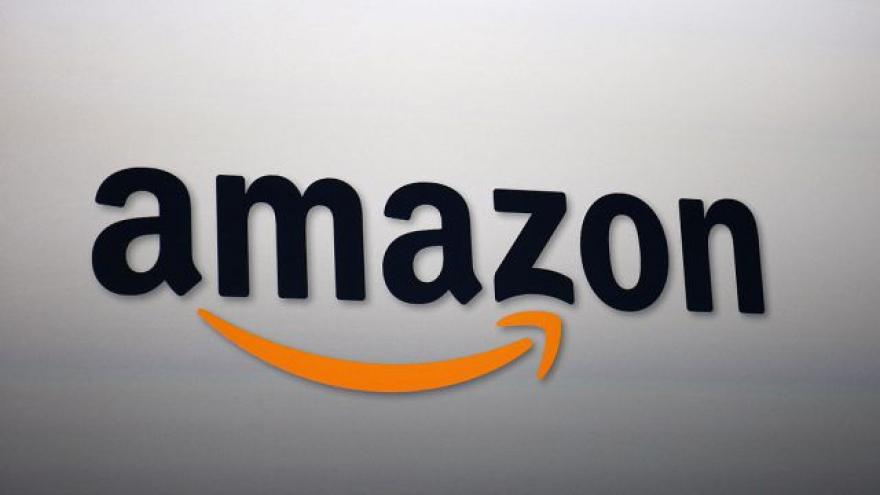Milwaukee among contending cities for second Amazon headquarters
MILWAUKEE (CBS 58) -- Amazon's surprise announcement Thursday that it plans to look for a second corporate headquarters in North America is likely to set off a bidding war among cities and municipalities, eager for a bite at the $38 billion in economic growth potential the company has promised with a second HQ.
The company gave some clues about what it wants for its cheekily named "HQ2" -- a location similar to its Seattle campus that is urban or suburban, well-connected to transit and in a metro area with at least 1 million people. But beyond that, the fact that it's going through a public process and accepting bids suggest it's open to looking far and wide -- and willing to be swayed by generous state and municipal tax breaks whipped up by local governments.
"It's unusual to go through a [request for proprosal] process, essentially shopping for a new location before any vetting is done on their own for a new location," said Dennis Donovan, president of WDG Consulting, a location search company.
The U.S. has 55 metro areas with a population over 1 million. Excluding Seattle itself and cities in Puerto Rico (an unlikely choice considering the U.S. territory's fiscal issues and legal status), that leaves 53.
Though Amazon specified a city larger than 1 million, most experts predict the behemoth will need a much larger metropolitan area.
"Amazon is so large that it itself is a place-maker and a place-changer," said Susan Wachter, co-director of the Penn Institute for Urban Research at the University of Pennsylvania. "It cannot put itself down in the middle of nowhere because it would overwhelm whatever was there."
That leaves out college towns like State College, Pennsylvania, or Ann Arbor, Michigan, where more than half of the population is college-educated but which lack proximity to major metro centers, along with their infrastructure.
"Amazon is a prototypical innovation economy company. It relies on a lot of workers with a lot of technical training," said Joseph Parilla, a fellow in the Metropolitan Policy program at the Brookings Institute. "We're looking at a combination of factors that might make an attractive labor market, like the quantity and quality of the college-educated force."
Among the many factors Amazon listed, that's the one that weighs above all others: talent. All the experts who spoke with CBS News for this story said the size and quality of the potential workforce would be a big factor for the project's location, which promises to hire 50,000 people at six-figure salaries.
That also means the places Amazon already has fulfillment centers won't necessarily have an advantage because those centers tend to employ hourly workers with lower-skilled people.
A third of U.S. adults have a bachelor's degree, so to find relatively high-educated cities, CBS News looked at metro areas where more than 33 percent of the population has a college degree or higher.
Twenty-six cities fit this criteria:
| Metro area | State | Population | Percent with bachelor's degree |
| New York-Newark-Jersey City | NY | 20,153,634 | 38.40 |
| Los Angeles-Long Beach-Anaheim | CA | 13,310,447 | 32.70 |
| Chicago-Naperville-Elgin | IL | 9,512,999 | 36.00 |
| Dallas-Fort Worth-Arlington | TX | 7,233,323 | 33.40 |
| Washington-Arlington-Alexandria | DC | 6,131,977 | 49.30 |
| Philadelphia-Camden-Wilmington | PA | 6,070,500 | 36.00 |
| Atlanta-Sandy Springs-Roswell | GA | 5,789,700 | 37.00 |
| Boston-Cambridge-Newton | MA | 4,794,447 | 46.00 |
| San Francisco-Oakland-Hayward | CA | 4,679,166 | 47.20 |
| Minneapolis-St. Paul-Bloomington | MN | 3,551,036 | 40.30 |
| San Diego-Carlsbad | CA | 3,317,749 | 37.20 |
| Denver-Aurora-Lakewood | CO | 2,853,077 | 41.80 |
| Baltimore-Columbia-Towson | MD | 2,798,886 | 38.60 |
| Charlotte-Concord-Gastonia | NC | 2,474,314 | 33.50 |
| Portland-Vancouver-Hillsboro | OR | 2,424,955 | 37.90 |
| Pittsburgh | PA | 2,342,299 | 33.00 |
| Kansas City | MO | 2,104,509 | 35.80 |
| Austin-Round Rock | TX | 2,056,405 | 42.60 |
| Columbus | OH | 2,041,520 | 35.10 |
| San Jose-Sunnyvale-Santa Clara | CA | 1,978,816 | 48.70 |
| Nashville-Davidson--Murfreesboro--Franklin | TN | 1,865,298 | 33.60 |
| Milwaukee-Waukesha-West Allis | WI | 1,572,482 | 33.90 |
| Raleigh | NC | 1,302,946 | 44.40 |
| Richmond | VA | 1,281,708 | 35.20 |
| Hartford-West Hartford-East Hartford | CT | 1,206,836 | 38.30 |
| Rochester | NY | 1,078,879 | 37.30 |
One thing that likely won't have much of an impact? The subsidies that the state or city offers, experts said -- although tax breaks might make a difference if two top-tier cities competed that were otherwise very similar.
"I often tell my clients that all the incentives in the world won't make the wrong location right," said Bruce Maus, a logistical consultant.
Wisconsin Economic Development Corporation public affairs and communications director Mark Maley released this statement about the economic stature of Wisconsin:
Under Governor Walker, the state has turned around its economy, cut taxes by more than $4.7 billion and implemented numerous pro-business policies that have resulted in Wisconsin being ranked in the Top 10 of “Best Places to Do Business.” These initiatives, coupled with our dedicated workforce, outstanding education system and reliable infrastructure, have put Wisconsin on the radar screen of major corporations from around the world as they seek to expand their operations.
As companies such as Foxconn and Haribo have discovered, there are many great reasons for establishing operations in Wisconsin. WEDC does not comment on potential or pending economic development opportunities.















